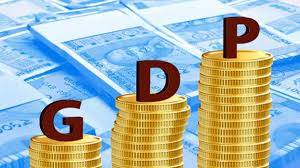Ghana’s economy has continued its upward trajectory, recording an impressive growth rate of 6.2% in the third quarter of 2024, surpassing earlier forecasts and cementing its position as one of the fastest-growing economies in Africa. This surge reflects the combined effects of strong policy reforms, vibrant private sector activities, and significant contributions from the agriculture, manufacturing, and services sectors.
#### A Record-Breaking Quarter
The 6.2% growth rate for Q3 2024 exceeded the 5.8% recorded in the first half of the year, marking the highest quarterly performance in over five years. The remarkable performance was underpinned by the government’s economic stabilization and transformation initiatives, aimed at diversifying the economy, enhancing investor confidence, and supporting critical sectors.
Finance Minister Dr. Mohammed Amin Adam highlighted this achievement as a testament to Ghana’s resilience in the face of global economic uncertainties. “This growth demonstrates the effectiveness of our economic reforms and the resilience of our businesses and entrepreneurs. Ghana is steadily positioning itself as a leader in Africa’s economic recovery,” he remarked during a press briefing in Accra.
#### Key Drivers of Growth
Several factors contributed to Ghana’s robust economic performance in Q3 2024:
**1. Agriculture and Agribusiness**
The agricultural sector recorded a stellar performance, growing by 7.5% compared to 6.8% in the previous quarter. This growth was driven by increased investment in mechanization, irrigation, and value chain development, particularly in cocoa production, which saw a 10% rise in output.
**2. Industrial and Manufacturing Sectors**
The industrial sector, including manufacturing, expanded by 5.8%, buoyed by rising production in textiles, pharmaceuticals, and agro-processing industries. The government’s One District, One Factory (1D1F) initiative played a crucial role in enhancing local production capacity and creating jobs in rural areas.
**3. Services Sector**
The services sector, which accounts for over 50% of Ghana’s GDP, maintained steady growth of 6.3%, driven by technology, financial services, and tourism. The easing of travel restrictions and successful marketing campaigns contributed to a 20% increase in tourist arrivals compared to the same period last year.
**4. Small and Medium Enterprises (SMEs)**
SMEs played a pivotal role in driving economic activity, particularly in retail, trade, and digital innovation. The Development Bank Ghana’s enhanced financing programs and training initiatives significantly boosted SME productivity and market expansion.
#### Policy Reforms and Economic Stability
Ghana’s economic success in Q3 2024 can be attributed to targeted policy measures aimed at fostering growth and stability. The government implemented reforms in tax administration, streamlined business registration processes, and invested heavily in digital infrastructure.
Dr. Amin Adam credited these measures with improving the ease of doing business and enhancing investor confidence. “The private sector is the engine of growth, and our reforms are tailored to unleash its full potential,” he stated.
Additionally, Ghana’s collaboration with international partners, including the International Monetary Fund (IMF), has provided the country with the fiscal space needed to implement key projects. The successful disbursement of funds from the $3 billion IMF program has helped stabilize the cedi, reduce inflationary pressures, and ensure sustained public investment in critical infrastructure.
#### Challenges and Risks
Despite the positive performance, Ghana’s economy faces challenges that could impact future growth. Rising global oil prices and uncertainties in the global financial markets pose risks to inflation and foreign exchange stability. Ghana’s public debt, although managed prudently, remains a concern, necessitating continued fiscal discipline.
Furthermore, the country’s heavy reliance on primary commodities, such as gold and cocoa, exposes it to external shocks. Diversifying the economy remains a priority to ensure long-term resilience.
#### Outlook for the Future
Economists are optimistic about Ghana’s economic outlook, projecting annual growth of 5.9% in 2024, higher than the 3.2% recorded in 2023. Key drivers include sustained investment in infrastructure, expanded export markets, and continued policy support for SMEs and the private sector.
The government’s commitment to implementing the Ghana CARES program, which focuses on revitalizing industries, increasing agricultural productivity, and enhancing digitalization, is expected to yield long-term benefits.
#### Conclusion
Ghana’s Q3 2024 economic performance is a clear indication of the country’s resilience and growth potential. By building on the progress achieved, addressing structural challenges, and fostering collaboration between the public and private sectors, Ghana is poised to sustain its growth trajectory.
Dr. Amin Adam summarized the achievement aptly: “Ghana’s economic story is one of determination, innovation, and shared prosperity. Together, we can build a future where growth is inclusive, sustainable, and transformative.”
As Ghana navigates its growth journey, its success serves as an inspiration for other African economies seeking to rebound and thrive in an increasingly dynamic global landscape.



